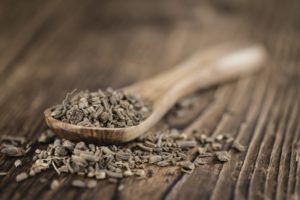Ashwagandha for Sleep
Sleep is imperative for good health, yet over 30% of adults report sleeping less than the recommended seven hours per night. Because of this, an increasing percentage of people are taking medication or supplements to help them sleep. Ashwagandha is one herbal supplement available that may promote sleep.
What Is Ashwagandha?
Ashwagandha is an evergreen plant grown in India, Africa, the Middle East, and parts of Europe. The ashwagandha plant has been used as an herbal supplement in the Ayurvedic medical tradition for thousands of years. Recently, the supplement has gained mainstream popularity as a holistic way to promote sleep and reduce stress.
Also known as Indian ginseng and Vitania sluggard, the scientific name of the ashwagandha plant is Withania somnifera, which means winter cherry.
Are You Getting Enough Deep Sleep?
A variety of issues can cause degrade your sleep quality. Answer three questions to understand if it’s a concern you should worry about.
Does Ashwagandha Help You Sleep?
An analysis of five different research studies found that ashwagandha supplements can help adults with and without insomnia sleep. More specifically, ashwagandha helped people fall asleep faster, improved sleep quality, increased total time spent asleep, and led to less time spent awake in bed.
Since then, a few studies have reiterated that ashwagandha supplements can act as a sleep aid for humans. Animal studies similarly examined exactly how ashwagandha affects sleep. These studies found that ashwagandha affects receptors of a neurotransmitter called GABA in the brain, promoting sleep.
Ashwagandha’s main active ingredients are withanolides, which are believed to carry a host of benefits including the ability to ease stress. Stress has been linked to poorer sleep quality and excessive daytime sleepiness. If taking ashwagandha before bed helps a person relax, this may be another way by which it promotes better sleep.
Ashwagandha Health Benefits (That Also Benefit Your Sleep!)
In addition to promoting sleep, studies have found that taking ashwagandha supplements may provide the following health benefits:
- Improved memory and focus
- Reduced stress levels
- Increased energy levels
- Increased muscle strength
- Reduced arthritis pain
- Improvement of depression symptoms
- Improved fertility in men
- Improved thyroid function in people with low thyroid hormones
Ashwagandha Dosage for Sleep: What’s Safe?
There are no universal guidelines when it comes to ashwagandha dosing. Check in with your doctor before beginning ashwagandha, since the supplement may interact with certain medications. Following dosage instructions on the product packaging is also a good idea, since there are different formulations of ashwagandha available.
Researchers commonly give study participants ashwagandha doses of 300 milligrams, either once or twice a day. Multiple studies suggest that people experience increased benefits from ashwagandha when taking 500 or 600 milligrams per day. Taking ashwagandha for at least eight weeks may also provide more benefit, although experts have not yet determined if it’s safe to take ashwagandha long-term.
When to Take Ashwagandha for Better Sleep
Most studies do not specify what time of day is best for taking ashwagandha. Talk with your doctor and read the packaging of your ashwagandha supplements to determine when and how often to take the supplement.
Some people feel drowsy after taking ashwagandha. If you begin the supplement and notice it makes you feel drowsy shortly after, you may want to take it near bedtime.

Potential Side Effects of Ashwagandha
Studies suggest that most people can take ashwagandha for up to three months without experiencing significant side effects. Ashwagandha may produce some side effects, however.
- Upset stomach
- Diarrhea
- Nausea
- Vomiting
- Sleepiness
- Liver problems
- Thyroid problems
More serious side effects, like liver problems, are rare and won’t be a problem for most people.
The safety and efficacy of supplements is not closely monitored by the U.S. Food and Drug Administration (FDA). Shoppers should take additional measures to make sure they are purchasing reputable products.
Deciding if Ashwagandha Is Right for You
Your doctor can help you decide if ashwagandha supplements are right for you. Ashwagandha appears to be safe for most people, but there are some who shouldn’t take it.
People who are pregnant or breastfeeding should avoid ashwagandha. Ashwagandha also isn’t recommended for people with thyroid disorders, autoimmune disorders, or prostate cancer. Finally, ashwagandha supplements can interact with certain medications for high blood pressure, diabetes, immune issues, seizures, and thyroid problems, so people on these medications as well as sleep medications should avoid it.
Medical Disclaimer: The content on this page should not be taken as medical advice or used as a recommendation for any specific treatment or medication. Always consult your doctor before taking a new medication or changing your current treatment.
References
7 Sources
-
National Center for Complementary and Integrative Health (NCCIH). (2023, March). Ashwagandha. U.S. Department of Health and Human Services, National Institutes of Health, National Center for Complementary and Integrative Health.
https://www.nccih.nih.gov/health/ashwagandha -
Office of Dietary Supplements (ODS). (2023, October 24). Ashwagandha: Is it helpful for stress, anxiety, or sleep? U.S. Department of Health and Human Services, National Institutes of Health, Division of Program Coordination, Planning, and Strategic Initiatives, Office of Dietary Supplements.
https://ods.od.nih.gov/factsheets/Ashwagandha-HealthProfessional/ -
Mikulska, P., Malinowska, M., Ignacyk, M., Szustowski, P., Nowak, J., Pesta, K., Szeląg, M., Szklanny, D., Judasz, E., Kaczmarek, G., Ejiohuo, O. P., Paczkowska-Walendowska, M., Gościniak, A., & Cielecka-Piontek, J. (2023). Ashwagandha (Withania somnifera)-Current research on the health-promoting activities: A narrative review. Pharmaceutics, 15(4), 1057.
https://pubmed.ncbi.nlm.nih.gov/37111543/ -
Cheah, K. L., Norhayati, M. N., Husniati Yaacob, L., & Abdul Rahman, R. (2021). Effect of ashwagandha (Withania somnifera) extract on sleep: A systematic review and meta-analysis. PloS One, 16(9), e0257843.
https://pubmed.ncbi.nlm.nih.gov/34559859/ -
Gopukumar, K., Thanawala, S., Somepalli, V., Rao, T. S. S., Thamatam, V. B., & Chauhan, S. (2021). Efficacy and safety of ashwagandha root extract on cognitive functions in healthy, stressed adults: A randomized, double-blind, placebo-controlled study. Evidence-Based Complementary and Alternative Medicine: eCAM, 2021, 8254344.
https://pubmed.ncbi.nlm.nih.gov/34858513/ -
Murthy, S. V., Fathima, S. N., & Mote, R. (2022). Hydroalcoholic extract of ashwagandha improves sleep by modulating GABA/histamine receptors and EEG slow-wave pattern in in vitro – in vivo experimental models. Preventive Nutrition and Food Science, 27(1), 108–120.
https://pubmed.ncbi.nlm.nih.gov/35465115/ -
Baker, C., Kirby, J. B., O’Connor, J., Lindsay, K. G., Hutchins, A., & Harris, M. (2022). The perceived impact of ashwagandha on stress, sleep quality, energy, and mental clarity for college students: Qualitative analysis of a double-blind randomized control trial. Journal of Medicinal Food, 25(12), 1095–1101.
https://pubmed.ncbi.nlm.nih.gov/35984870/






















